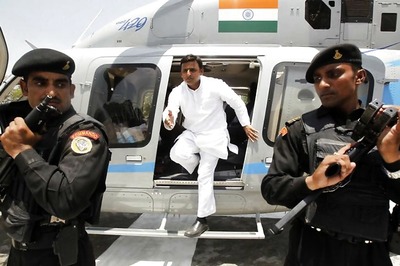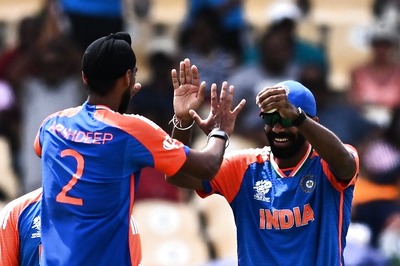
views
New Delhi: The Supreme Court on Wednesday said reservation in educational institutions and jobs for the backward class is hard reality and students of general category should understand it.
"We know what students (of general category) feel. We understand their blood boils when they see students (of reserved class) having less marks are getting admission but they should know that reservation is the hard reality. They should understand it. We cannot treat unequals as equal," a bench of justices RV Raveendran and AK Patnaik said.
The bench, which made the remarks, referred the matter to Chief Justice of India SH Kapadia for constituting an appropriate bench to sort out the confusion on the use of term cut-off in the law which upheld the 27 per cent quota for OBC in central educational institutions.
The remarks were made by the bench when a lawyer for anti-quota group pleaded that the standard of education will go down if the quota system is implemented blindly without any check on the quality of students admitted in the reserved category.
The court was hearing the issues pertaining to discrepancies in implementation of 27 per cent quota for OBC in central universities, the law for which was upheld by its constitution bench on April 10, 2008.
The two-judge bench was to sort out the confusion on the issue of cut-off marks to be adopted for admission of OBC candidates.
It was dwelling on whether the cut-off marks for OBC should be only 10 per cent less than the marks on which the admission closed for general category candidates or it should not be less than 10 per cent of the eligibility criteria.
However, the high voltage arguments ended abruptly as senior advocate PP Rao, appearing for anti-quota applicants, said Justice Dalveer Bhandari should be made part of any bench hearing the matter as he was one of the judges in the five-judge constitution bench which had upheld the law for 27 per cent quota for OBC with some conditions.
The senior advocate said Justice Bhandari had used the term 'cut-off' in the judgement written by him.
The other two judges, Justices Arijit Pasayat and CK Thakker, who had also used the same term has since retired.
He said that under such circumstances Justice Bhandari can give clarification as to in what context the word cut-off has been used in the judgement.
Rao said either justice Bhandari should be made part of the bench headed by Justice Raveendran or if a constitution bench is created he should be included in it.
Both Justice Raveendran and Justice Bhandari were part of the five-judge constitution bench which had upheld the OBC quota law. Others in the bench, the then Chief Justice of India KG Balakrishnan and justices Pasayat and Thakker have since retired.
The submission of Rao was opposed by advocates appearing for OBC candidates who said the law should be implemented in its true spirit.
However, the bench said since some reservations have been expressed, it was inclined to refer the matter to the CJI for constituting an appropriate bench.
The petitioner PV Indersan, a former professor of IIT Madras, had sought implementation of an earlier apex court verdict by which the constitutional validity of 27 per cent quota for OBC's in central universities was upheld by it on April 10, 2008.
He submitted Delhi University is following a different yardstick by which the gap in cut-off for OBC students and general category students should not be more than 10 per cent where as in JNU, the practice of 10 per cent relaxation in minimum eligibility criteria is being followed.
He had approached the apex court against Delhi High Court judgment which said the cut-off marks for OBC should be 10 per cent less than the minimum eligible marks for general category candidates.




















Comments
0 comment